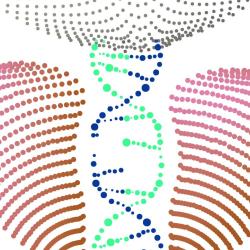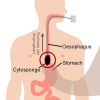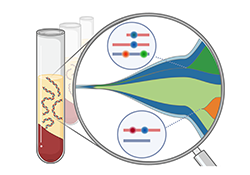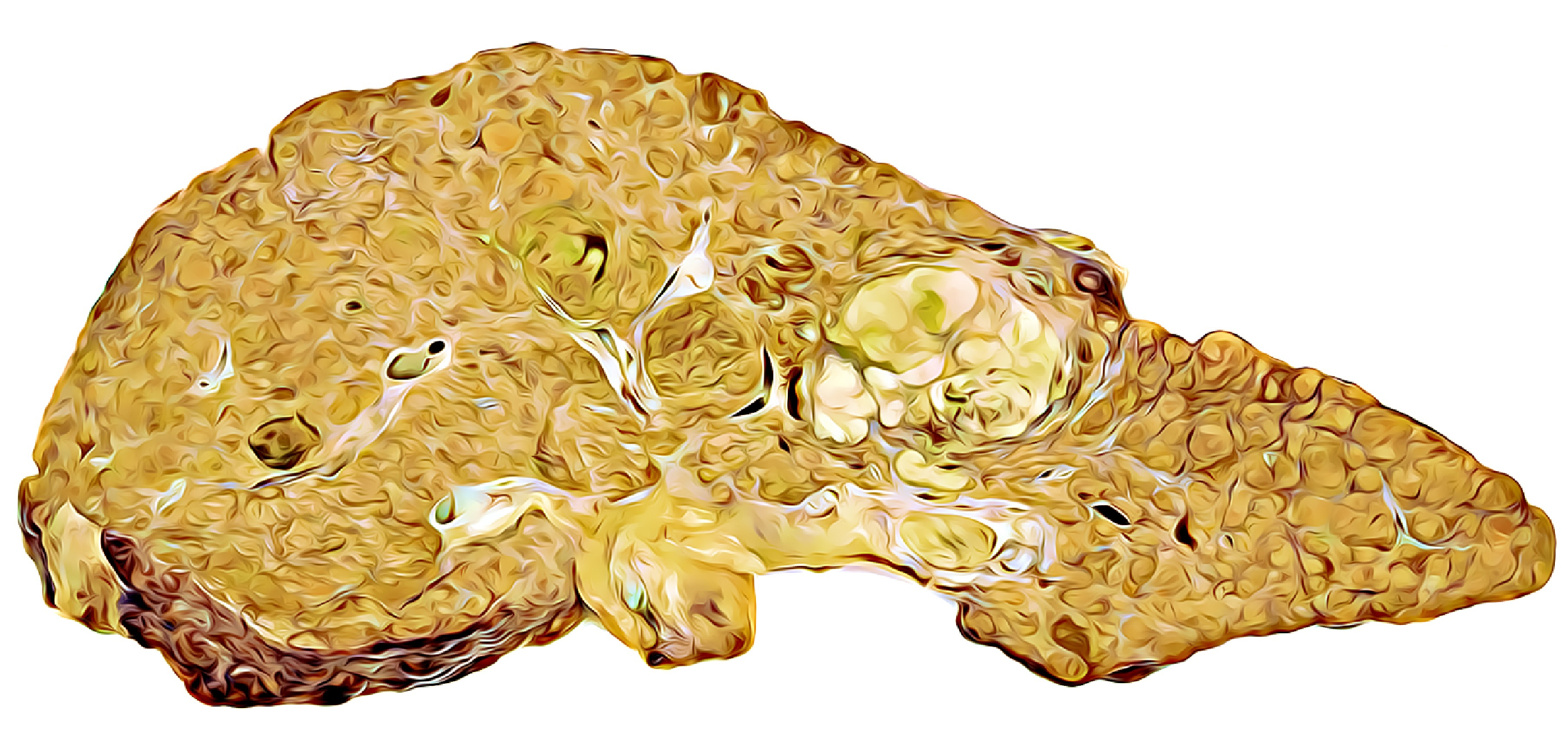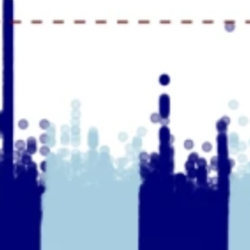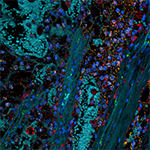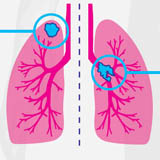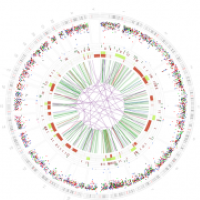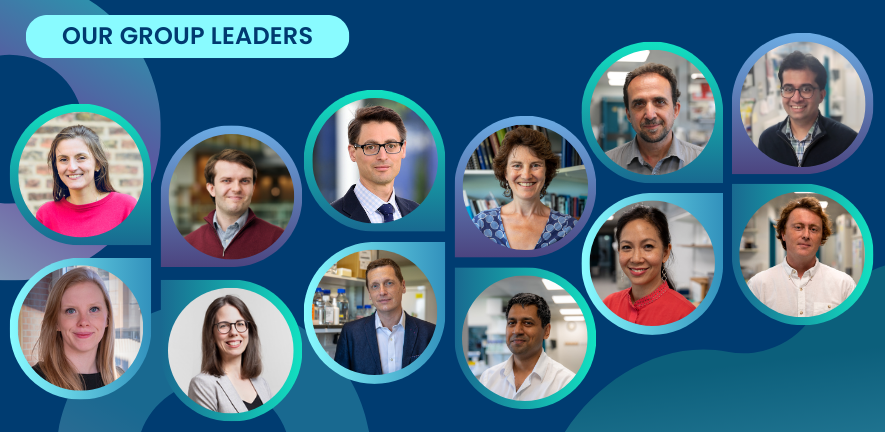
The Blundell group
Jamie Blundell's group works on understanding how mutant clones arise, expand and compete in our tissues as we age. Focusing predominantly on blood, we use novel genetic lineage tracking tools and deep sequencing of longitudinal samples to identify mutant clones which are under strong positive selection. Such clones are implicated in early cancer and thus are candidates for improved cancer detection.
Blundell Group Website: blundelllab.com/
Jamie Blundell Profile
The Dev group
Harveer Dev’s group explores mechanisms of genome instability in early stage prostate cancer, in order to improve the detection and treatment of patients with lethal disease. We use high-throughput genetic screening approaches and surgically-derived early disease models to explore DNA damage response pathways in prostate cancer. This allows us to identify critical genetic drivers, and hence biomarkers, of disease progression and therapeutic responsiveness, providing opportunities to deliver personalised therapies to patients.
Harveer Dev Profile
The Fitzgerald group
The Fitzgerald group is passionate about finding innovative ways to detect cancer at an early stage. We particularly focus on oesophageal and gastric cancer which together account for a substantial cancer burden worldwide. Oesophageal cancer is one of the most deadly cancers with a 5-year survival of under 20%. In order to develop new solutions for diagnosing individuals at high risk for oesophageal and gastric cancer we are a highly inter-disciplinary group spanning: epidemiology and public health; cell and molecular biology; computational biology; clinical trial expertise; and collaborative work in machine learning, physics and chemical engineering.
Learn more about the Fitzgerald Group research
Rebecca Fitzgerald Profile
The Frankell group
Alex Frankell’s Somatic Evolution Monitoring (SEM) group focuses on methods to detect and track evolution occurring in premalignant and neoplastic tissues using longitudinal, minimally-invasive samples, for example circulating tumour DNA in blood. We develop and apply novel molecular and computational methods to these samples working closely with several clinical collaborators, with a focus on lung and oesophageal cancer. The group aims to leverage these technologies to understand the selection pressures driving tumour initiation and evolution as well as to form the basis of novel diagnostics for pre-invasive risk stratification, early cancer detection and drug response prediction.
Alex Frankell Profile
The Hoare group
Matt Hoare’s group investigates mechanisms of cancer predisposition in patients with chronic liver disease. Focussing on acquired somatic mutations in human liver we have identified recurrent mutations that potentially explain field cancerisation in the liver and systemic metabolic dysfunction. We are working to understand the diagnostic, prognostic and therapeutic potential of these mutations.
Hoare Group Website: sites.google.com/cam.ac.uk/eci-hoare-lab
Matt Hoare Profile
The Kar group
Siddhartha Kar's group studies naturally occurring inherited or germline genetic variation and uses this variation to investigate the causes, consequences, and correlates of key somatic or tumour genomic aberrations responsible for driving cancer development and progression. Somatic genomic aberrations are the changes to the genome that are acquired over the course of life. The ultimate aim is to use insights from this work to inform our understanding of susceptibility to, and the prevention, early detection and treatment of, common cancers.
Kar Group Website: www.karlab.org
Siddhartha Kar Profile
The Mitchell group
The Mitchell group aims to improve outcomes for patients with kidney cancer. We focus on understanding the past and predicting the future of treatment naïve kidney tumours. To achieve this, we apply sequencing technologies to uniquely annotated clinical specimens, and leverage data from pre-existing large-scale cohorts. These studies allow us to understand key processes at play in early cancer. The results will show how we can intervene and detect cancer when it is at a curable stage, and predict which tumours benefit from expedited treatment.
Tom Mitchell Profile
The Muñoz-Espín group
Daniel Muñoz-Espín’s group works on the interface between cellular senescence, plasticity and the fundamental processes and mechanisms that lie at the origin of cancer. We are also developing novel tools and nano-devices for cancer diagnosis and therapy.
Munoz-Espin Group Website: www.munoz-espinlab.com
Daniel Muñoz-Espín Profile
The Nik-Zainal group
Serena Nik-Zainal's group studies the physiology of mutagenesis, combining computational approaches with experimental and cancer data. The insights gained through Big Data analysis and experiments in cell-based systems has led to the development of clinical algorithmic tools that should translate into clinical utility in the near future.
Nik-Zainal Group website: www.mutationalsignatures.com
Serena Nik-Zainal Profile
The Watson group
Caroline Watson’s group focuses on gaining a better understanding of factors that drive or impede the progression of pre-leukaemic mutations in blood to gain a better understanding of how and why some people develop blood cancers, in particular myelodysplastic syndrome (MDS) and acute myeloid leukaemia (AML). Using longitudinal multi-omic approaches the Watson lab aims to identify clinically relevant molecular pathways that may reveal novel preventative therapeutic targets for early intervention/ cancer prevention. The group also focuses on developing innovative approaches for remote monitoring of both research study participants and high-risk patients, using self-collected blood samples and wearable technologies.


